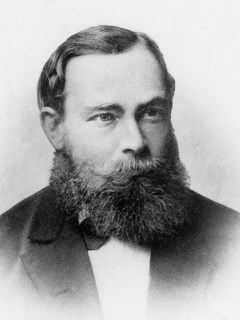
Publication details
Publisher: Springer
Place: Berlin
Year: 2018
Pages: 47-74
Series: Nordic Wittgenstein Studies
ISBN (Hardback): 9783319711850
Full citation:
, "Frege, the normativity of logic, and the Kantian tradition", in: New essays on Frege, Berlin, Springer, 2018


Frege, the normativity of logic, and the Kantian tradition
pp. 47-74
in: Gisela Bengtsson, Simo Säätelä, Alois Pichler (eds), New essays on Frege, Berlin, Springer, 2018Abstract
This paper considers the role of constitutivity and normativity in Frege's conception of logic. It outlines an historical interpretation with two goals. First, it traces these concepts back to their origins in Kant's philosophy. Second, it considers some of the different ways in which the issue of normativity and its proper grounding was addressed in the neo-Kantian tradition and in early analytic philosophy. Some neo-Kantians worked out an epistemic-normative conception of objective judgment, according to which the objectivity of cognition is constituted by distinctively logical norms. In Frege we find an original and sophisticated version of this line of thought. For Frege, the normative and constitutive roles of logic come to the fore in the articulation of scientific reason which follows the classical model of demonstrative science as cognitio ex principiis (cognition from principles). Wittgenstein's Tractatus then opens up a fresh Kantian perspective on the constitutivity of logic, one that grounds logic in structure rather than norms, and does so in conscious opposition to Frege and his normative science. Logic is transcendental, according to Wittgenstein, being the essence of the world and of all description. Hence, the normative function of logic becomes, in a way, superfluous.
Cited authors
Publication details
Publisher: Springer
Place: Berlin
Year: 2018
Pages: 47-74
Series: Nordic Wittgenstein Studies
ISBN (Hardback): 9783319711850
Full citation:
, "Frege, the normativity of logic, and the Kantian tradition", in: New essays on Frege, Berlin, Springer, 2018




